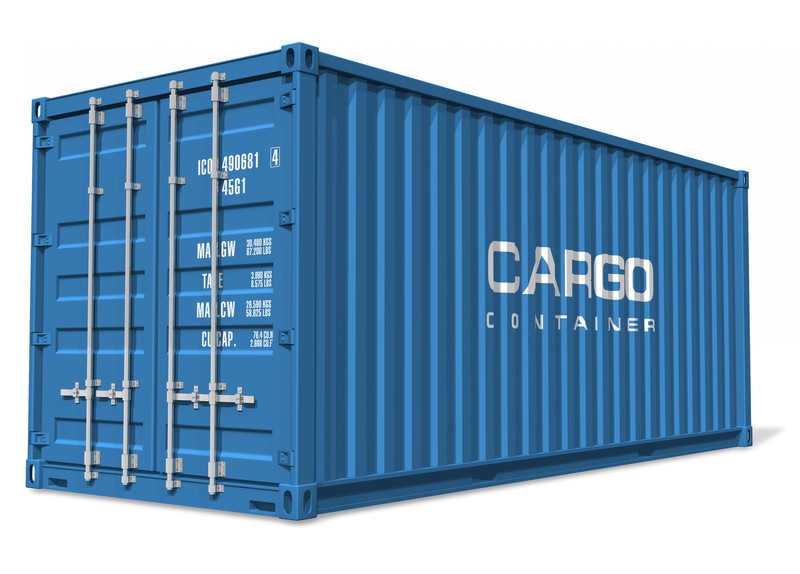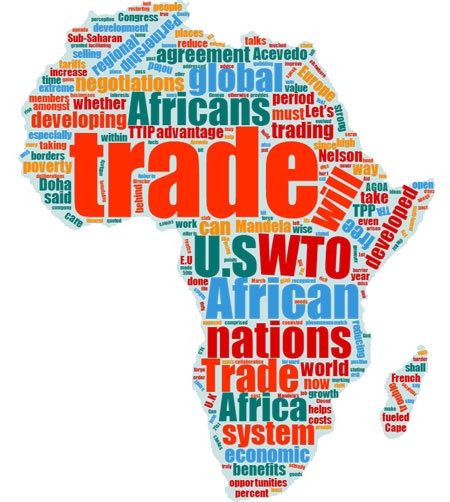Will the World Reject the Undeniable Benefits of Globalization?
This article originally appeared in Global Trade Magazine on August 8, 2016

Marc Levinson’s book The Box, published on the fiftieth anniversary of the first container voyage in April 1956, tells the story of how a simple container, made a phenomenon known as globalization possible.
As the title suggests, the box developed by Malcom McLean, founder of a trucking company based in Red Springs, North Carolina, and one of the company’s original drivers, made the world smaller and the world economy bigger by the introduction of intermodal shipping which connected markets globally.
What exactly is globalization?
It seems to have different meanings to different people. It affects not only international commerce but also ideas and governance. As far as trade goes, globalization is a very old story with trade routes dating back to the Roman Empire and the Middle Ages in Europe. But containerization and intermodal transportation brought globalization to new heights and created the global marketplace that we take for granted today.
What has globalization brought us? It has brought economic growth but not everywhere. It has created jobs but it has also displaced workers in certain industries. It brings consumers more choice and lower prices, but some question whether consumers enjoy the benefit of lower prices with currency manipulation. It has given businesses access to foreign markets, but this is no easy feat for small and medium-sized enterprises given crossborder regulatory and other impediments and risk inherent in doing business in emerging countries.
On the positive side, let’s take the example of South Korea. In the four decades since the Korean War, South Korea has been transformed from a developing country to one of Asia’s most vibrant, manufacturing powerhouses that has virtually eradicated poverty, malnutrition, and illiteracy. It has increased its per capita gross domestic product (GDP) more quickly than any of its neighbors since the 1960s, according to McKinsey & Co.
In an article entitled “Globalization: What the West can learn from Asia,” Iiaz Nabi states that “[g]lobalization has been hugely beneficial to Asia. Japan, South Korea, Taiwan, Malaysia, Singapore, Hong Kong, Thailand, and have reaped lasting benefits from worldwide investment flows, knowledge exchanges, and rapid economic growth. And while globalization undoubtedly made the rich even richer, the poor also benefited.”
So how has the anti-globalization movement evolved? Why has the Trans-Pacific Partnership (TPP) become a flash point in the U.S. Presidential election? Why is there such a clamor to close borders to the stuff we buy every day?
Anti-trade sentiment is not new. It has been brewing for some time. Demonstrations protesting globalization date back to 1988 at the annual meetings of the International Monetary Fund (IMF) and have recurred in Paris at the G7 meetings in 1989, at the 50th anniversary of the IMF and the World Bank in Madrid in 1994, and at the World Trade Organization (WTO) Ministerial Conference in Seattle in 1999. It has now become commonplace for protests to occur on the sidelines of meetings of international organizations and other summits.
In 2001, Barry Bosworth and Philip Gordon explained in their Brookings article “Managing a Globalizing World: An Overview” that globalization was so controversial because it creates both winners and losers, referring to the workers in U.S. manufacturing whose jobs were displaced through trade as losers in globalization. They also noted that most countries make only minimal efforts to compensate the losers and pointed to the domestic conflicts long evident in the U.S. in the textile, steel and automobile industries.
Brookings’ Nabi explains that Asia has not suffered from the same political blowback that western developed countries have experienced because Asian governments have invested heavily in human capital by education and health as well as made public investment in infrastructure to attract foreign investment.
Boswell and Gordon also point to the disparities between developed and developing countries, with richer countries reaping the benefits of global trade and investment. As they point out, most economists contend that the poorer countries of the world need more integration into global economy for access to capital and trade and investment necessary to raise living standards. This very disparity between poor and rich countries has created difficulties for the WTO and has arguably led to its lack of success in its Doha Development Round.
Are we ready to examine how to reap the greatest benefits of globalization for all citizens and countries? Are we ready to have an intelligent discussion? Or have we forgotten the lessons of history like the disastrous economic effects of Smoot-Hawley tariffs?
While globalization needs some tweaking, we should take note of one of the major successes of globalization: poverty alleviation. In 201l, Laurence Chandy and Geoffrey Gertz reported in YaleGlobal that the world was in the midst of the fastest period of poverty reduction ever seen. While they acknowledged that the hows and whys of this trend will be debated for years to come, they state that the broader trends of the rise of globalization, the spread of capitalism, and the improving quality of economic governance have enabled the developing world to begin to close the gap between rich and poor countries.
Is the world in 2016 at a tipping point on globalization? Should we throw out the baby with the bath water and stop putting stuff in those boxes that traverse our oceans and travel our highways and rail corridors to our stores and manufacturing facilities?
Evelyn M. Suarez is expressing her personal views as a Washington, D.C.-based international trade lawyer and consultant. She is Founder and Principal of The Suarez Firm and is President of the Association of Women in International Trade (WIIT).

 By all accounts, international trade is in trouble as anti-globalization sentiment continues to grow across continents especially in the U.S. and Europe. Some say it’s the slow economic recovery that has fueled protectionist, xenophobic and nationalistic politics that has given rise to Donald Trump and Marine LePen. It is undeniable that there is a popular sense of disenfranchisement or being left behind by many citizens in these nations.
By all accounts, international trade is in trouble as anti-globalization sentiment continues to grow across continents especially in the U.S. and Europe. Some say it’s the slow economic recovery that has fueled protectionist, xenophobic and nationalistic politics that has given rise to Donald Trump and Marine LePen. It is undeniable that there is a popular sense of disenfranchisement or being left behind by many citizens in these nations.